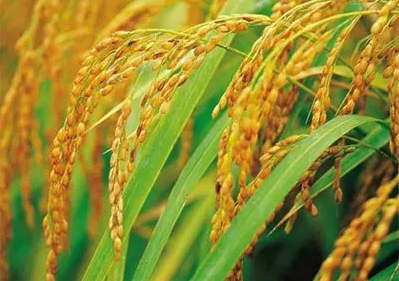In the swampy district of Budaka in eastern Uganda, Chinese hybrid rice is a crop that farmers count on to boost incomes.
Farmers living in this region hail the high yielding crop as key to improving their livelihoods and enabling them to pay the tuition fees for their children.Like many of her village mates, Joyce Nabejja, who has been farming rice from her childhood to now into her marriage, is shifting to the Chinese hybrid rice from the local rice.

The new breed was brought here three years ago when Chinese experts descended on this district, deeming the environs the most appropriate part in Uganda for rice farming.The experts are working under a tripartite agreement between China, Uganda and the UN's Food and Agricultural Organization to promote better farming practices.
The agreement is under the auspices of the South to South Cooperation program established in 2009 to help developing countries share knowledge and expertise so that all can benefit from innovations and good practices that have been tried and tested in countries facing similar conditions and challenges.
At a field training session by the Chinese on Tuesday, Nabejja was among the over 100 farmers who gathered to learn how to farm the hybrid rice.
Luo Zhongping, a Chinese cereal expert, took the farmers through practical lessons of planting the rice, right from the nursery bed to harvesting time.He told the farmers that over the last three years when the rice was on trial, results show that its yield is three to four fold better than the local breed.
"Three years demo in Budaka shows that it can reach high yields. The yield can reach three tonnes per acre which is three to four times more compared with local rice," he said.
He noted that in a small acreage, especially in a place like Budaka where land is limited, a crop with higher yields would surely make a difference.
Ofwono Willy Osinde, the Budaka District Production Officer, told Xinhua in an interview that previously people were hesitant when it comes to planting the hybrid rice.
He said people were accustomed to the old rice farming practice where there was not such trouble of planting the rice first in a nursery bed and transplanting it later. They also saw the planting of seedlings in a straight line as tedious.
After getting testimonies from those who planted the hybrid rice, however, farmers are convinced of higher production and higher income, and switching to the new breed is now a movement sweeping through the villages, Osinde said.
James Tumwine, who heads the Uganda side of the tripartite understanding, told the farmers that after the successful pilot of planting Chinese hybrid rice in Budaka, other parts of the country will be encouraged to plant the rice.
By Ronald Ssekandi, Yuan Qing(Africa.news.cn)